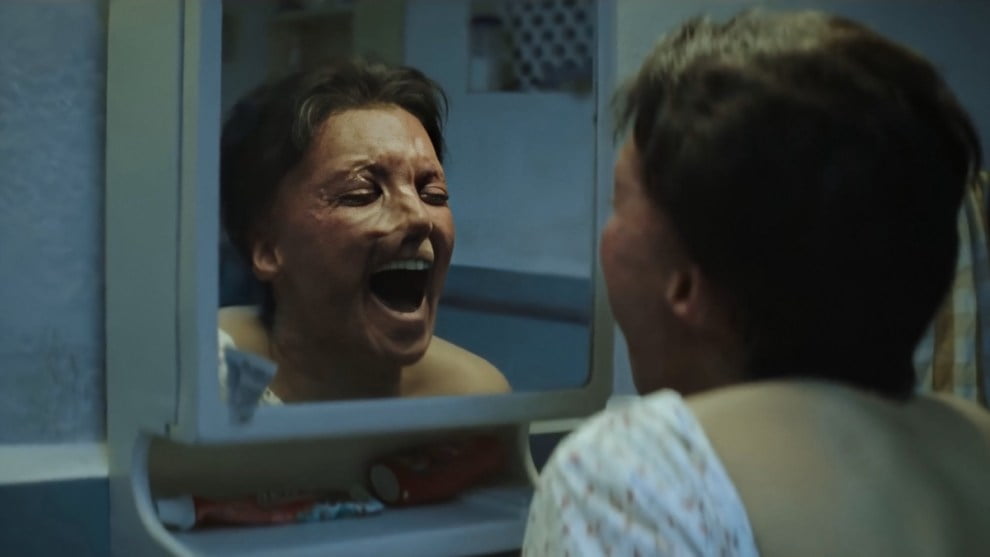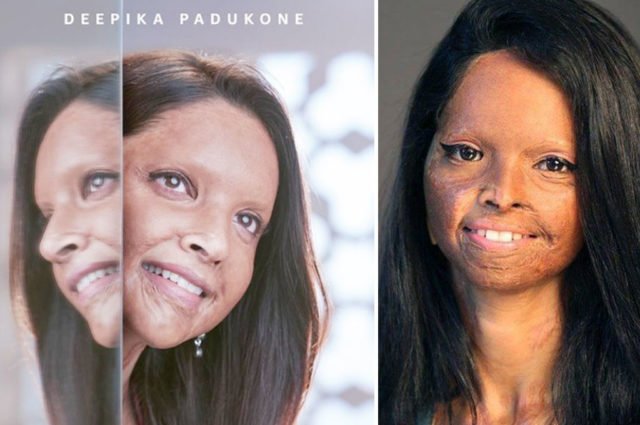By Bhavya Arora & Prannv Dhawan
Deepika Padukone’s Chhapaak is a rare example of a cinematic narrative that does not convey a fixed meaning on complex socio-legal questions of patriarchal violence, criminal justice and rehabilitative policies.

It is a stellar depiction of a survivor’s journey from being a victim to being a role model. With an exceptional sensitivity, it shows how the institutional and systemic problems like police apathy, unregulated sale of acid and lack of public sensitization are larger products of patriarchal structures. It shows the root cause of these attacks by portraying the real life story of a survivor which shows how these attacks are pernicious attempts to subordinate women who seek to subvert patriarchal structures and ambitiously strive for freedom or social mobility.
It is also a stinging critique of the masculinist acquisition instinct that escalate from voyeurism, harassment and to ultimately manifest in such heinous violence. While the movie furthers the public outrage over the kafkaesque criminal justice system and the archaic colonial laws, it fails to avoid the pitfalls of the populist criminalization narrative.
The argument for reasonably strict penalty notwithstanding, the film does venture into a discourse on criminalization where there is a predominance of public morality over rule of law that seeks to protect the accused’s rights.
If you have ever felt excruciating physical pain in your life, then you’re bound to relate to the piercing cries of Malti in the film. Towards the end, just when you are beginning to loosen your shoulders, the movie shakes you like a leaf with another gruesome acid attack incident. This is what lends an uneasy but poignant impact to it.
There is one thing about Meghna Gulzar. When it comes to making films, she chooses to be a non-conformist. The only thing that she decides to stay true to while writing is the story and its impact.
Also Read: Despite The Welcoming Response, Chhapaak’s Title Track Thwarts The Very Purport Of The Movie
Wedding the nuance of desirable social messaging with the ease of storytelling, the movie demystifies the menace of acid-attacks as the grave acts that lead to a sudden (chhapaak) erasure of identity. It brings to the fore the fact that these barbaric attacks are not peculiar acts of demonic criminals but rather a product of our social structures.
The film also does a brilliant job at giving insights into the life of acid attack survivors with subtle and nuanced scenes. It portrays them equally vulnerable to moments of slippage no matter how much time has passed or how many successes they have achieved post the attack.
In one of the scenes set in a store, Malti reads out comments on one of their social media posts to another attack survivor.
After a series of positive comments, narration of a distasteful comment ends up in both of them stealing eyes and collapsing a little inside.
The film is a shout out to lawyers and the NGO support system who strengthen the remedial process by realizing the greater goal of their being. But at the same time, it brilliantly explores the fault lines between the survivor’s real-life struggles and their allies/advocates’ moral crusade.
While the survivor is braving the odds in her family and medical facilities, trying to somehow find hopes of rebuilding her life after the traumatic episode, her advocates intend to make an example out of punishment that culprits get. It shows how there exists a huge gap of social economic capability on the part of the survivor who has to carry the disproportionate burden of pursuing the legal battle in the labyrinth of our criminal justice system.
Thenceforth, the film complements its critique of challenges of access to justice by expositing the lack of socio-medical support for the victim even as the Supreme Court-mandated Victim Compensation Scheme faces serious challenges in its effectiveness.
The film also highlights the vulnerability of the young women who are bereft of empathetic family support when they battle the everyday misogyny, taboos about male association and sexualised shaming from their own.
While highlighting the perils of lack of comprehensive sexuality education and socio-psychological support service at this age, it highlights how women bear the burdensome indignity just for going about their normal lives. It helps one appreciate that the iniquitous ignominy of acid attacks demands radical societal transformation.
Image Credits: Google Images
Authors: Bhavya Arora is a B.Com (H) student from Hansraj College. Prannv Dhawan is a law student from National Law School, Bangalore.
You’d Also Like To Read:
Does Deepika Padukone Really Need A Charity Closet To Raise Money For Mental Health Awareness?




































